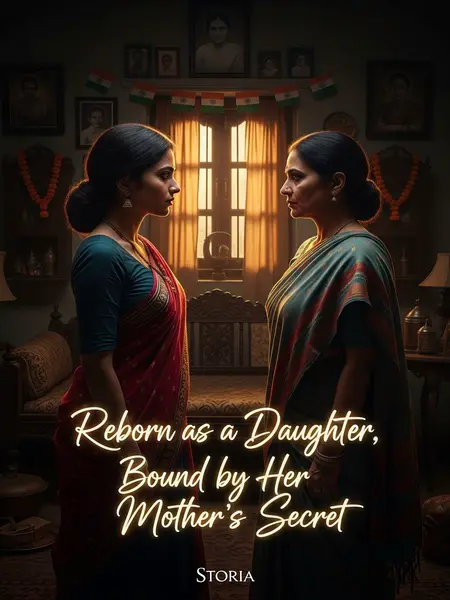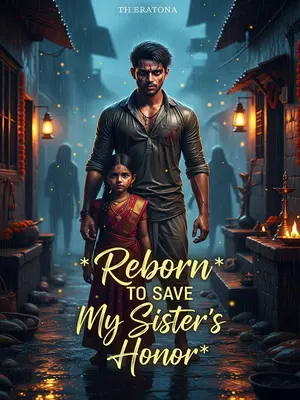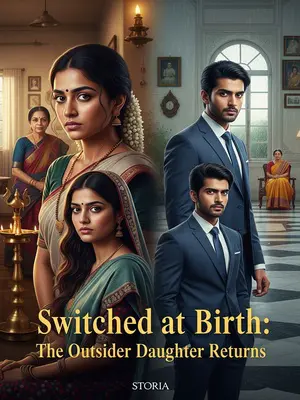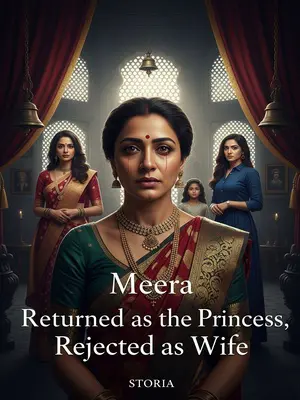Chapter 12: Plans and Promises
“Comrade Meera, you’re angry out of embarrassment!”
I called after her, still grinning. She spun around, her eyes wide, and I quickly bit back my laughter.
I sat across from my mother, unable to help laughing again at her blushing face.
She fidgeted with the edge of her saree, glaring at me. I sobered up, remembering that this was serious business.
Seeing she was about to scold me, I quickly straightened my expression.
I sat up straight, folding my hands in my lap, trying to look as serious as possible. She relaxed, but only a little.
“Mother, opening a school isn’t a trivial thing. What are you really planning?”
I lowered my voice, suddenly serious. This was no ordinary charity. I knew my mother—there was always a plan beneath the surface.
My mother reached over and took the double hairpin from my hair.
She examined the pin, its gold gleaming in the afternoon sun. Her eyes softened, as if remembering something from another life.
“Jiya, do you know how much rice this hairpin could buy?”
Her voice was quiet, but there was steel beneath it. I knew this was not just a question—it was a lesson.
“About a hundred and fifty kilos. Even more if it’s coarse grain.”
I replied automatically, my mind calculating as fast as ever. She nodded, a small smile playing at her lips.
I pressed my lips together, saying nothing.
I sensed where this conversation was going. My heart thudded with anticipation, and I waited for her to continue.
“When I first came here, I was actually very happy.”
She looked out the window, her gaze distant. “I had never lived so well—soft beds, warm food, safety. For the first time, I felt pampered.”
“I’d never lived so well before—eating rice and wheat every meal, wearing such soft clothes. Everything taken care of.”
Her voice was wistful, almost guilty. “I could eat as much as I wanted, wear fine clothes, sleep without fear.”
“You could say I was seduced by these sugar-coated bullets.”
She gave a wry laugh, shaking her head. “Comfort makes you forget where you came from, sometimes.”
My mother took a sip of chai, her gaze distant.
She cradled the cup, letting the steam curl around her face. The clink of glass against saucer echoed in the quiet room. She paused to refill her chai, stirring it slowly as she weighed her words, grounding the moment in familiar Indian rhythms.
“Before I got married, I went with my mother to my dowry estate.”
She spoke softly, eyes fixed on the past. “I saw the land that was to be mine, the people who worked it.”
“You know, your grandfather was just a minor babu, but the shops and fields he gave me still brought in several hundred rupees a year.”
She counted on her fingers, listing off the shops, the acres, the tenants. “It was more wealth than I had ever seen.”
“I looked at those thin, dark, shrivelled faces of the farmers.”
Her face grew sombre. “They looked just like my own parents once did—hungry, tired, hopeless.”
“It was like seeing my former parents.”
Her voice broke, and I realised how deeply the memory pained her.
“I realised I was still a farmer’s child. I once swore under the flag to dedicate my life to my faith. How could I now trample these people, sucking their bones and blood for pleasure?”
She looked at me, her eyes blazing. “How can anyone claim greatness by standing on the broken backs of others?”
I understood then: those who have seen the light can never pretend to be blind in the darkness.
Her words struck me like a thunderclap. Once you know the truth, it’s impossible to forget. I felt the fire ignite inside me, small but growing stronger.






